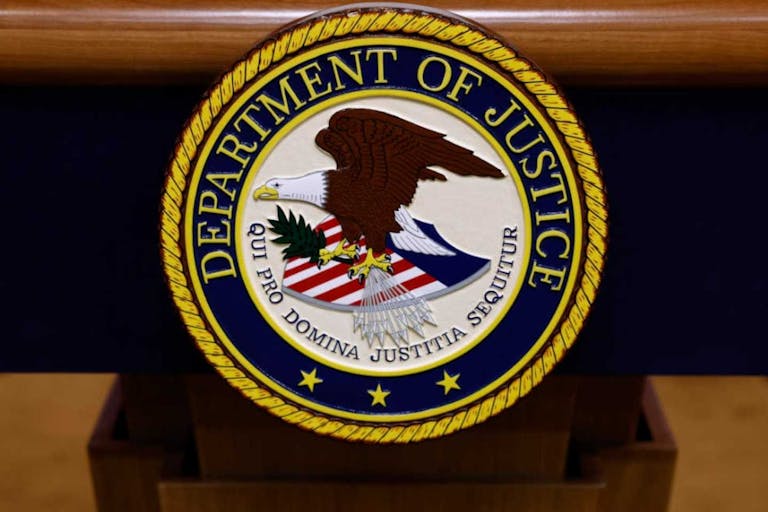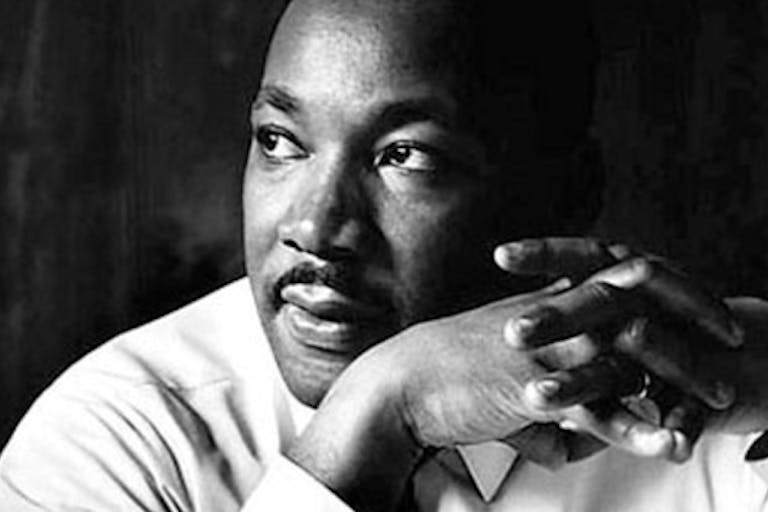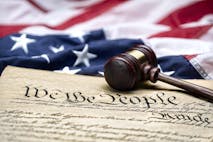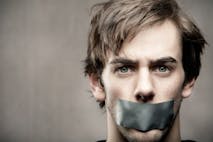
DOJ reverses Biden-era rule that allowed VA to commit abortions
Nancy Flanders
·
Responding to Gerard Biard: Was MLK a threat to democracy?
On Sunday, Gerard Biard, the current editor of the magazine Charlie Hebdo, argued in an interview with NBC that religion should be a strictly private affair. The publication, which is known for its satirical jabs at religion, was recently the target of a terrorist attack carried out by Islamic extremists. Twelve people were killed in the massacre, including Stéphane Charbonnier, the magazine’s former editor.
In the interview, Biard explains, “We do not attack religion, but we do when it gets involved in politics.” He states, “We are convinced that religion has no place in the political arena.” Biard respects religious people who “are not publicly declaring it” but instead “keep it within their hearts.” However, he does not respect the believer who injects “his or her private life into the public sphere.”
According to Biard, this is nothing short of an attack on democracy: “If God becomes entangled in politics, then democracy is in danger.” Baird argues, “God must not be a political or public figure. He must be a private figure.”
It is rather ironic that such sentiments should be expressed now, on the weekend America celebrates the legacy of the man who was arguably her most politically active pastor: Martin Luther King, Jr.
As a staunch advocate of non-violence, King would have undoubtedly condemned the horrific attack on Charlie Hebdo. However, the famous letter composed in a Birmingham jail reveals that King would have disagreed vigorously with Biard on the relationship between religion and politics. Consider the following two arguments King advances in this letter.
1) The Law Has No Authority Apart from God
King could advocate civil disobedience because he believed that human laws were to be obeyed only if they aligned with God’s laws.
One may well ask: “How can you advocate breaking some laws and obeying others?” The answer lies in the fact that there are two types of laws: just and unjust….Now, what is the difference between the two? How does one determine whether a law is just or unjust? A just law is a man made code that squares with the moral law or the law of God.
Now, if King is correct, and human laws have force only insofar as they align with God’s laws, then how can talk of God be excluded from the public arena?
2) The Church Is Called to Shape Society
Article continues below
Dear Reader,
In 2026, Live Action is heading straight where the battle is fiercest: college campuses.
We have a bold initiative to establish 100 Live Action campus chapters within the next year, and your partnership will make it a success!
Your support today will help train and equip young leaders, bring Live Action’s educational content into academic environments, host on-campus events and debates, and empower students to challenge the pro-abortion status quo with truth and compassion.
Invest in pro-life grassroots outreach and cultural formation with your DOUBLED year-end gift!
In addition to his conviction that human laws have force only insofar as they align with God’s laws, King believes that Christians should work to bring human laws into conformity with God’s laws.
I have just received a letter from a white brother in Texas. He writes: “All Christians know that the colored people will receive equal rights eventually, but it is possible that you are in too great a religious hurry. It has taken Christianity almost two thousand years to accomplish what it has. The teachings of Christ take time to come to earth.”
Notice that the “white brother in Texas” assumes that King’s efforts are an attempt to bring the teachings of Christ to Earth. King’s response affirms that this is indeed his intent.
We will have to repent in this generation not merely for the hateful words and actions of the bad people but for the appalling silence of the good people. Human progress never rolls in on wheels of inevitability; it comes through the tireless efforts of men willing to be co workers with God, and without this hard work, time itself becomes an ally of the forces of social stagnation.
As a political activist, King sees himself as God’s co-worker. King explicitly rejects the notion that religion is a private matter that should be kept out of the public arena.
In the midst of a mighty struggle to rid our nation of racial and economic injustice, I have heard many ministers say: “Those are social issues, with which the gospel has no real concern.” And I have watched many churches commit themselves to a completely other worldly religion which makes a strange, un-Biblical distinction between body and soul, between the sacred and the secular.
King’s view of the relationship between religion and politics is thus starkly opposed to the view expressed by Biard. King believes that the church should shape society.
There was a time when the church was very powerful–in the time when the early Christians rejoiced at being deemed worthy to suffer for what they believed. In those days the church was not merely a thermometer that recorded the ideas and principles of popular opinion; it was a thermostat that transformed the mores of society. Whenever the early Christians entered a town, the people in power became disturbed and immediately sought to convict the Christians for being “disturbers of the peace” and “outside agitators.”‘ But the Christians pressed on, in the conviction that they were “a colony of heaven,” called to obey God rather than man. Small in number, they were big in commitment. They were too God-intoxicated to be “astronomically intimidated.” By their effort and example they brought an end to such ancient evils as infanticide and gladiatorial contests.
Conclusion
Does the politically active religion exemplified by King indeed pose a threat to democracy? No. Such a religion actually bolsters democracy. Without the conviction that there is a law of God — a “right” and “wrong” that transcends popular opinion — democracy may easily deteriorate into the tyranny of the majority.
Strictly speaking, as long as there are more whites than blacks, there is nothing undemocratic about slavery. A democracy, therefore, needs individuals like King who will stand against the majority and declare that the word of God supersedes the word of man.
One of the most common arguments against pro-life advocates is that they bring their religion into the public arena. Now, there are certainly many atheists and agnostics who are pro-life. However, like the early Christians King references, many others do indeed oppose abortion and infanticide because of their religious beliefs. The attempt to silence such people simply because their words are informed by their religion is the true threat to democracy.
Live Action News is pro-life news and commentary from a pro-life perspective.
Contact editor@liveaction.org for questions, corrections, or if you are seeking permission to reprint any Live Action News content.
Guest Articles: To submit a guest article to Live Action News, email editor@liveaction.org with an attached Word document of 800-1000 words. Please also attach any photos relevant to your submission if applicable. If your submission is accepted for publication, you will be notified within three weeks. Guest articles are not compensated (see our Open License Agreement). Thank you for your interest in Live Action News!

Nancy Flanders
·
Issues
Angeline Tan
·
Guest Column
Emily Berning
·
Opinion
Nancy Flanders
·
Opinion
Mark Wiltz
·
Opinion
Mark Wiltz
·
Issues
Murray Vasser
·
Issues
Murray Vasser
·
Human Rights
Murray Vasser
·
Analysis
Murray Vasser
·
Opinion
Murray Vasser
·